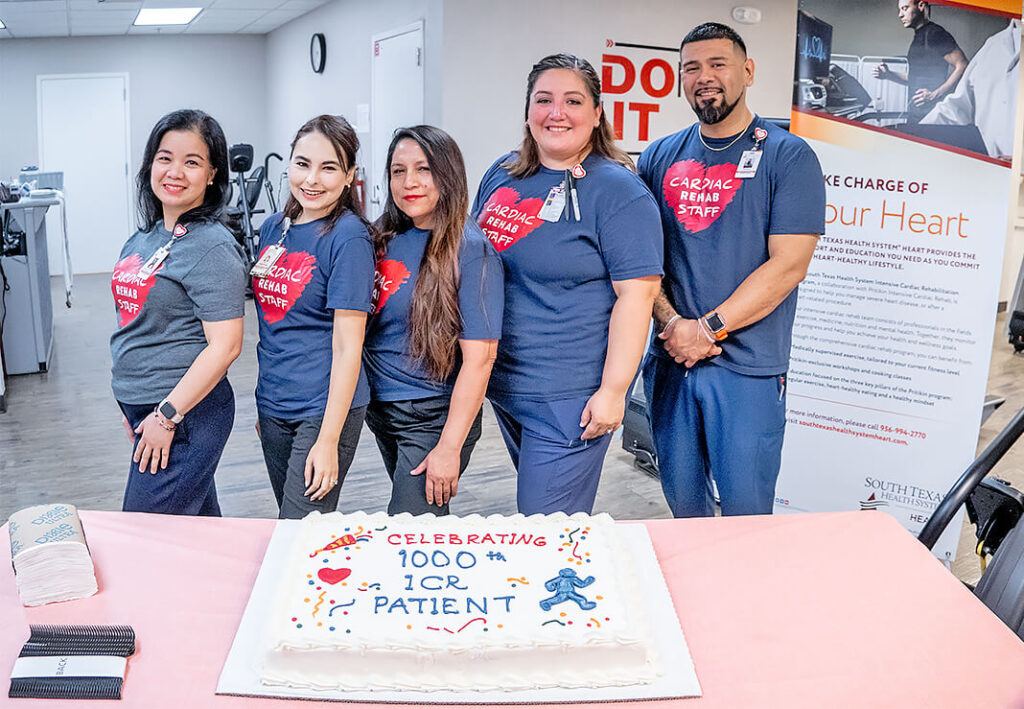
Mega Doctor News
Heart disease remains the leading cause of death in the United States, according to the Centers for Disease Control and Prevention, with nearly 700,000 Americans dying from conditions affecting the heart and vessels and another 805,000 experiencing heart attacks each year.
Heart disease death rates have fallen 66% from 1970 to 2022, according to a recent study published in the Journal of the American Heart Association, and heart attack deaths decreasing 89% during that same time due to advancements in intervention and prevention efforts.
Unfortunately, the rising prevalence of obesity, diabetes, hypertension and physical inactivity has contributed to an 81% increase in deaths from other types of heart disease, including arrhythmia, heart failure and hypertensive heart disease, during the same 52-year span, according to the study.

In the Rio Grande Valley, patients who have experienced a recent heart attack, have undergone heart surgery like abypass or valve repair/replacement, angioplasty or stenting or have been diagnosed with stable angina or heart failure have been able to count on the South Texas Health System Intensive Cardiac Rehabilitation Program in the last five years for comprehensive and intensive care aimed at improving cardiovascular health.
Based at STHS Heart, the Valley’s first and only freestanding heart hospital and dedicated cardiac emergency room, the program recently celebrated providing intensive cardiac rehabilitation (ICR) to its 1000th patient, a 72-year-old man with congestive heart failure with reduced ejection fraction.
“It’s an honor to celebrate this major milestone; this achievement is a reflection of the strength and determination of our patients and the exceptional dedication of our ICR team who helps empower them on their healing journeys,” says Anna Liza Esguerra, Clinical Program Director, STHS Intensive Cardiac Rehabilitation Program, STHS Heart. “Most importantly, we recognize the guidance and leadership of our medical director, Dr. Federico Azpurua, whose vision and commitment have been instrumental in the program’s growth and success. Here’s to continued progress, stronger hearts and many more lives transformed.”
The program, which launched during height of the pandemic in June 2020, was developed in partnership withPritikin Intensive Cardiac Rehab to help patients recover, reduce future heart event risk and improve their overall heart health and quality of life. Today, it remains the only comprehensive lifestyle change program of its kind in the Rio Grande Valley.
“While traditional cardiac rehabilitation and intensive cardiac rehabilitation both aim to improve cardiovascular health after a heart event, ICR offers a more comprehensive and intensive approach,” says Brenda Ivory, Chief Executive Officer, South Texas Health System Heart. ”Unlike the exercise sessions with some education on diet offered through a traditional 36-session cardiac rehabilitation program, ours is conducted over up to 72 sessions and incorporates medically supervised exercise, in-depth education on nutrition, stress management and lifestyle changes.”
Approved by Medicare and many commercial insurance providers, the South Texas Health System Intensive Cardiac Rehabilitation Program follows Pritikin’s comprehensive curriculum and focuses on three key pillars: regular exercise, a heart-healthy eating plan and a healthy mind-set.
”It’s about more than just managing symptoms; the rigorous ICR program at STHS Heart equips patients with the tools and knowledge they need for success long after completing the program,” says Esguerra. “In addition to helping patients regain their ability to perform daily activities, participate in recreational activities and manage conditions like diabetes and hypertension, which often coexist with heart disease, our program also addresses the psychological impact of heart disease and promotes a positive outlook. It’s been an honor to serve 1,000 patients to date. Here’s to continued progress, stronger hearts and many more lives transformed.”
The South Texas Health System Intensive Cardiac Rehabilitation program is located at 500 E. Ridge Rd., Second Floor, McAllen, TX 78503. For more information, call 956-994-2000 or visithttps://www.southtexashealthsystemheart.com/.









